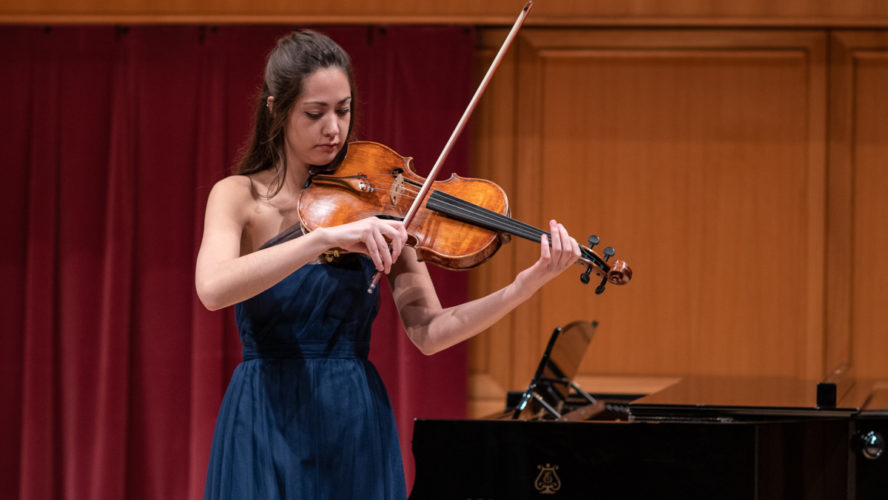
AYS violist Sarah Wilkinson has been surrounded by music all her life. After picking up her first instrument at a very young age, her passion for music has stuck with her as she has grown into the skilled violist she is today. Talking to Sarah about her commitment to her music career and how she’s managed the pandemic as an artist was nothing short of impressive.
I began playing the violin when I was four years old and I made the switch from the violin to the viola when I was around ten years old. My Aunt, Anne Cole, was my violin teacher at the time. Anne is also a luthier, so I grew up going to my lessons and being surrounded by many of her instruments that she made. She always had violas hanging up, and I would often try and play them. At the age of ten, I was very tall and I was able to reach and play some of her large violas and create a warm sound. She encouraged me to play the viola and my uncle became my viola teacher. I was excited to make the switch because I fell in love with the rich sound of the viola and the deep sound of the C string was very exciting to me!
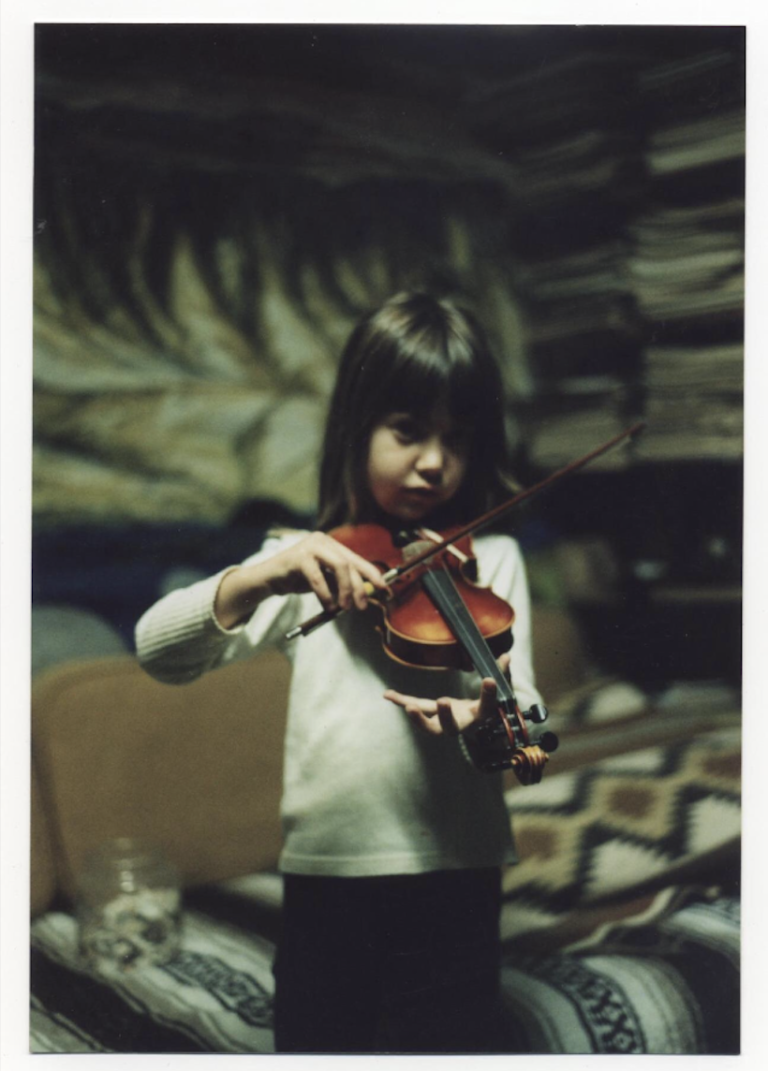
Music has always played a huge role in my life. Although there wasn’t necessarily one single event that pushed me to decide this, I had known for a while that music was what I loved and wanted to do for the rest of my life. I come from a musical family and I was used to being surrounded by constant music at a young age. My Aunt, Anne Cole, and my Uncle, David Cole introduced me to music when I was young, and they are the reason why I am pursuing music. Anne was my first teacher, and she taught me how to play the viola in a way that allowed my own voice to come through. David became my primary teacher when I was in high school, and he prepared me to play my first solo with the Albuquerque Youth Symphony during my senior year of high school. I am so grateful for their guidance, as they instilled a love of music in me that I will carry with me for the rest of my life. I became serious about pursuing the viola as a career when I was in high school. Music has played such a vital role in my upbringing and I couldn’t see myself doing anything else.
I first heard about AYS during my sophomore year in undergrad at the University of Denver. My grandparents live in Los Angeles and are music lovers and supporters, and they sent me a program from an AYS concert that they had gone to. They told me how wonderful the symphony sounded and that I should audition for it someday. Coincidently, I found myself going to graduate school at the University of Southern California, so I had the opportunity to audition for the group. I knew several musicians in the orchestra and they all had great experiences playing with the ensemble, so I really wanted to join AYS. I played with AYS as a substitute player for a concert in Disney Hall in the beginning of 2020, and then I auditioned later in the year and was thrilled when I earned a seat in the viola section.
My most memorable experience with AYS was the AYS Fall Concert in November 2020 that took place during the pandemic and filmed at UCLA’s Royce Hall. Because it was a pre-recorded concert and with the COVID-restrictions we were unable to invite an audience. It was very challenging not having an audience to play for since we feed off of the audience’s energy, so it’s hard when that’s taken away. Looking back, I took it for granted being able to play in multiple orchestra concerts throughout the year. Once that opportunity was taken away, I felt like a big piece in my life was missing. It was so uplifting to see all of the musicians coming together again after so long and creating music together. We played Starburst by Jessie Montgomery and Britten’s Variations on a Theme of Frank bridge. The program for this concert was very challenging, but incredibly rewarding.
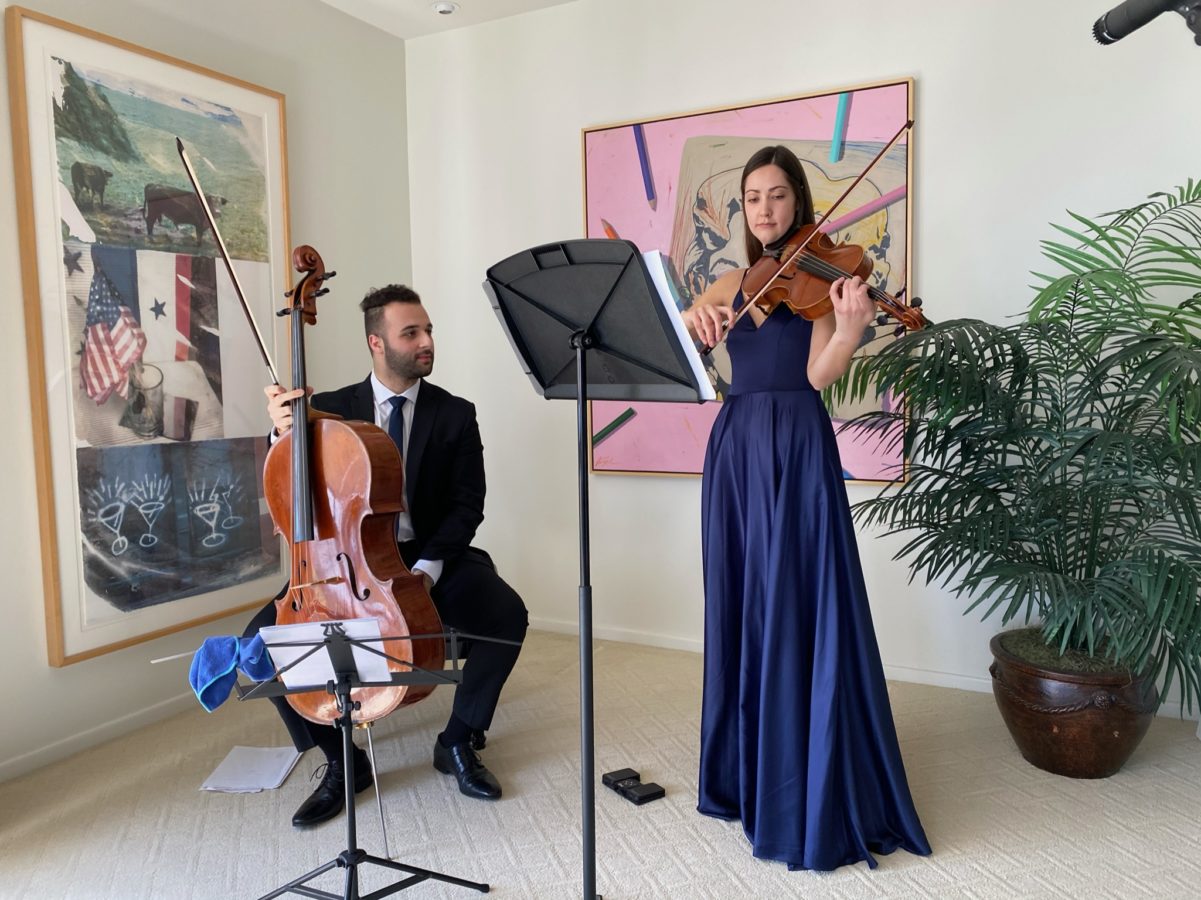
Playing in AYS has helped me learn what to expect as a professional orchestral musician. AYS operates using the same schedule as a professional orchestra, with only a few rehearsals before each concert. Because of this, it is important to learn your music efficiently and at a high level before rehearsals begin and to be quick to make adjustments in rehearsal. The musicians in AYS play at such an advanced standard, and this has really pushed me musically. A lot of other youth symphonies and school orchestras are not like that, so AYS is really special.
My goal each day is to practice for around three hours. I figured out which practicing methods worked best for myself. For example, my practice sessions are least efficient at night and my brain is more foggy, so it takes me a lot longer to learn passages. Because of this, I really try to get my practicing done in the mornings. When I have a really busy day at school and have to practice in the evenings, I have to push myself to stay focused. Unfortunately, I fall into the category of easily distracted, so when I practice it is very important that I turn my phone on airplane mode so there is one less distraction.
When I begin practicing, I like to start off with scales, arpeggios and double stops. If I don’t begin with technique practice, my playing won’t be as accurate when I’m playing my repertoire. I then have a goal for the day, and I find it to be a little less overwhelming to practice my pieces in chunks. During concert season I have to budget my time very wisely so that I can get to every piece that I have to practice. I like to make schedules for myself that include breaks, so that I won’t get distracted. I think it’s very important to take many breaks when I am practicing, including taking time away from my instrument to do things in life that I enjoy, so that when I come back to my instrument I feel refreshed and inspired.
The first music festival I went to was the Marrowstone Music Festival, and this was during the summer that I was going into 7th grade. Marrowstone is a festival located in Washington State, and I remember being really nervous to leave home and be on my own for a few weeks. During my time there, I played in an orchestra and had my first experiences with chamber music. I had a really enriching summer that year and became more excited to pursue music more seriously.
Throughout the years I spent two summers in Vermont at Green Mountain Chamber Music Festival, and one summer in Acqui Terme Italy, at InterHarmony International music festival. I look back at each of these festivals with such fondness and I grew both as a musician and as a person at each of these festivals. However, my absolute favorite summer festival that I have attended is Aspen Music Festival. I went in 2019, and I would highly recommend this festival to musicians. Aspen is one of the most beautiful places that you could spend your summer, and I hope I will be able to go back again.
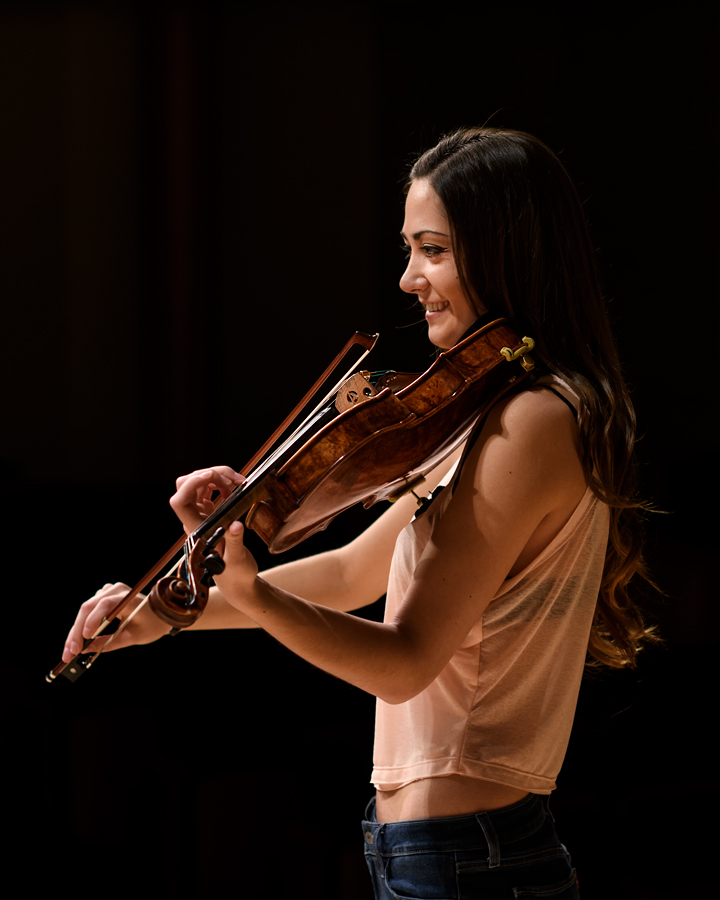
Being able to work with world class conductors and musicians is extremely inspiring. You play in a different concert each week, so it’s imperative that you stay on top of practicing and work hard to learn music quickly. One of the best parts about music festivals is meeting lifelong friends and meeting people who you will work with and associate with for the rest of your life.
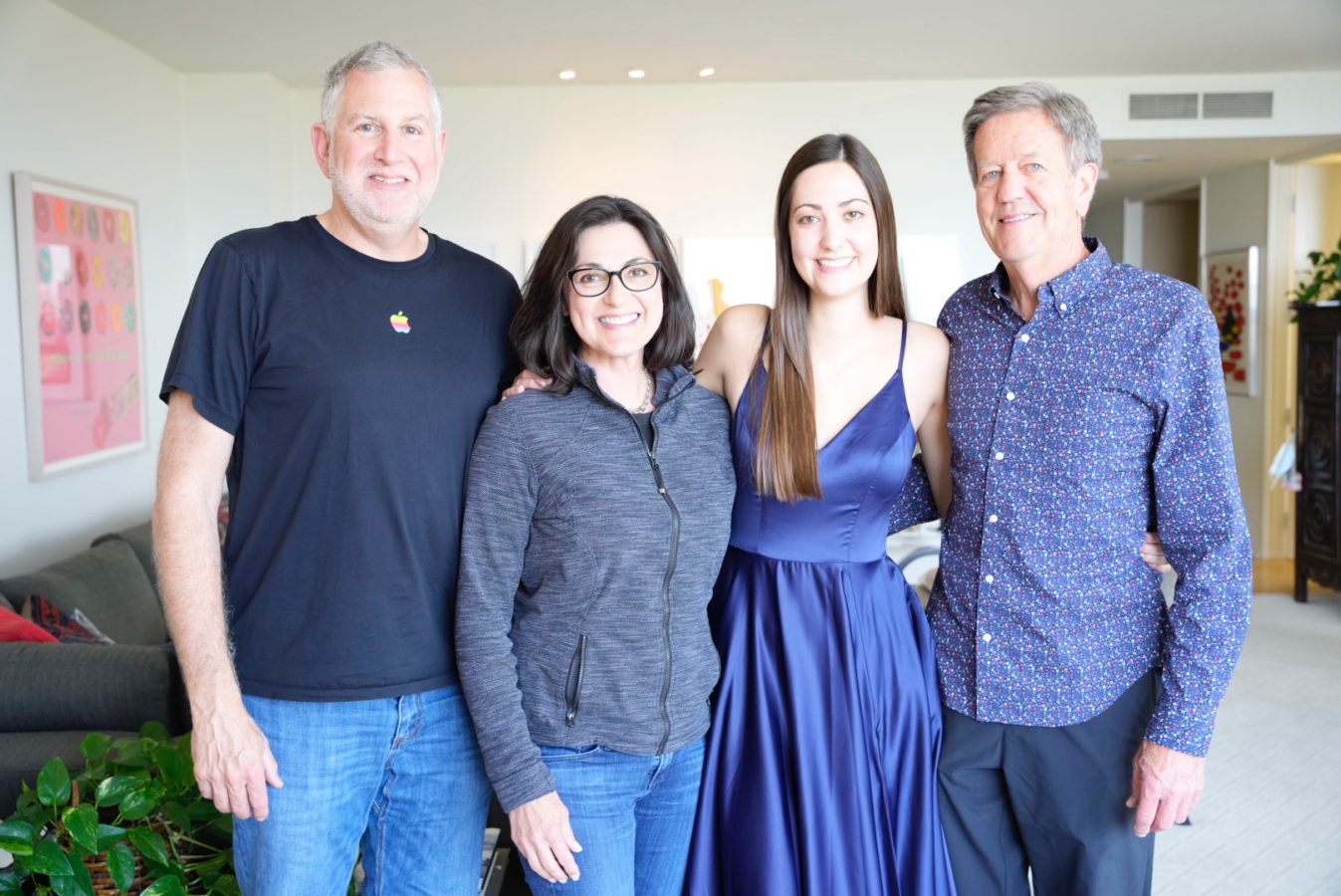
The most rewarding part of being a musician is being able to put so much of yourself into your craft. When you perform, you let the world have a glimpse into your imagination. When I go to classical concerts, I usually leave feeling content, and being a performer means that I am capable of doing that for other people and that is really rewarding for me. I’ve been practicing a lot in my apartment and I recently had some neighbors deliver flowers with a card saying “We love walking by and hearing your music, keep doing this forever” which was so sweet! It was really nice that other people could enjoy my music, especially during this time of isolation.
During the pandemic since there were no opportunities for live paid performances, I looked to other facets of the music world that could provide a source of income. I had always been interested in teaching but had never pushed myself to find students. During the pandemic, I pursued viola and violin teaching at two music schools and I also found several students to teach virtually. Over the pandemic I have grown my studio to 17 students, and I really look forward to teaching them every week. I have a student who just turned 4 and another who is 28. It’s a bit tricky teaching younger students over Zoom, so I have had to come up with a lot of different teaching techniques. I have found such joy in teaching, and I hope to continue to teach for the rest of my life. I have also been pleasantly surprised at how teaching has helped my own playing improve.
I am starting a certificate program at USC in the fall, and I am so excited to perform in person again and play chamber music! Although I played chamber music virtually in 2020, playing virtual music is not the same as playing and interacting with other musicians in person. I would rehearse with a group of musicians from USC over Zoom and it was very challenging. Each week we would set time to rehearse, and we would talk about the pieces and would each play our part individually. Rehearsals were mainly just talking instead of playing, which was very hard because we wanted to play together! When you play music with people in person, you feed off of each other’s energy and you communicate with one another through body language. I am also excited to have more regular rehearsals with AYS and I’m really looking forward to seeing all of the musicians in the group that I haven’t seen in a while!
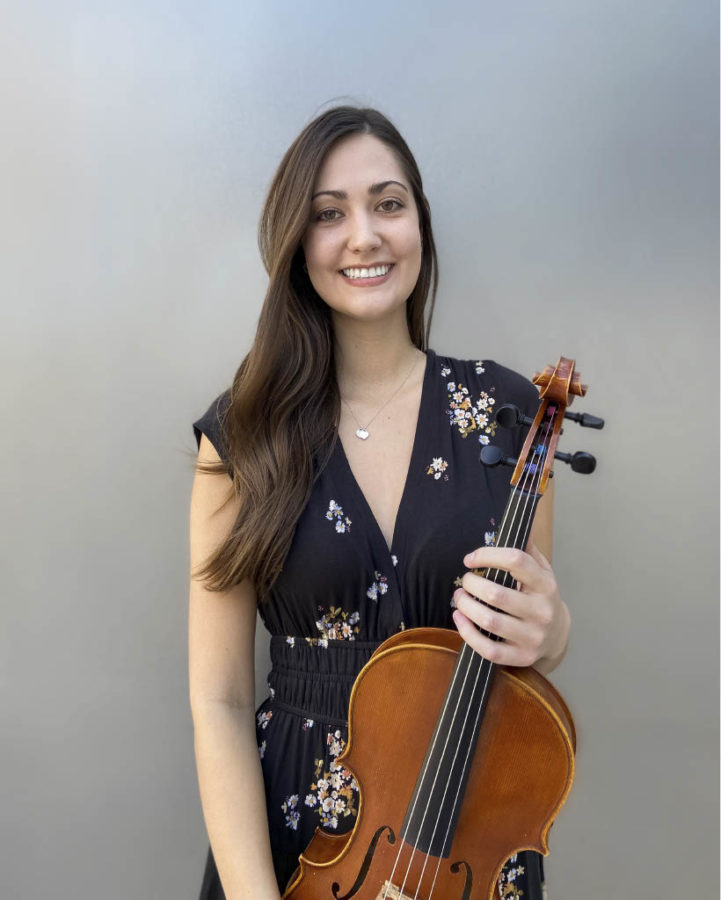
About Sarah:
Violist Sarah Wilkinson, originally from Albuquerque, New Mexico, began playing the violin at a young age and switched to the viola as her primary instrument at age 11 after becoming enthralled with the warm sound and timbre of the instrument. She is a member of the American Youth Symphony and Thornton Symphony Orchestra, and has played with the Pueblo Symphony, Aspen Festival Orchestra, Lamont Symphony Orchestra, and Albuquerque Youth Symphony. In past summers, Sarah has enjoyed participating in The Aspen Music Festival and School, Green Mountain Chamber Music Festival, Marrowstone Music Festival, and InterHarmony International Music Festival in Italy. In addition to her career as a performer, Sarah enjoys teaching viola and violin at 88 Keys Music Academy and the Santa Monica Conservatory of Music, as well as her own private studio. Sarah received her Bachelor of Music degree in Viola Performance from the University of Denver, where she studied with Basil Vendryes and graduated Cum Laude in 2019. Sarah received her Master of Music degree in Viola performance at the University of Southern California, studying under Karen Dreyfus. Currently, Sarah is pursuing a Graduate Certificate at the University of Southern California.
If you want to support AYS and the education of young musicians, consider making a donation today. Learn more about our Champion program and sponsoring a musician on our website or by emailing development@AYSymphony.org.